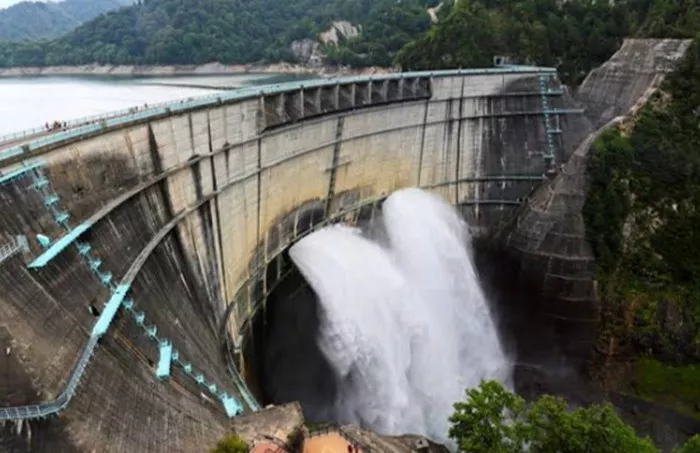Central Puerto, Argentina’s largest power generator by installed capacity, is optimistic that upcoming regulatory changes will allow hydropower concessionaires to sell a portion of their output through private contracts—starting with a modest share that could rise gradually to full market exposure.
During an earnings call with investors, Central Puerto executives said the revised framework could initially permit up to 5% of hydropower output to be sold privately, with the share increasing incrementally—potentially reaching 100% within a decade.
CEO Fernando Bonnet said the company is awaiting final bidding terms from the government for the first group of hydropower concessions to be re-tendered. These include five plants whose contracts expired in 2023: Alicurá, El Chocón-Arroyito, Planicie Banderita, and Piedra del Águila—all located along the Neuquén-Río Negro border.
Bonnet noted that while detailed rules are still pending, the government appears committed to a phased deregulation model. “They’re proposing a mix—starting with a fixed price, likely similar or slightly higher than current rates, and progressively transitioning toward a private contract-based system. The idea is to raise the private share every two years, potentially reaching 100% in ten years,” he told investors.
Central Puerto, a previous operator of the 1.4GW Piedra del Águila plant, confirmed its intention to participate in the upcoming auction process. The company believes its extensive hydropower experience provides a competitive advantage. State-run YPF Luz, currently not active in hydroelectric generation, has also expressed interest.
Bonnet said international participation is possible, but foreign bidders may require additional legal or financial guarantees. “We haven’t yet seen foreign companies entering this process, but that could change depending on the conditions offered. They may need greater assurances. That said, we do expect Argentina’s large domestic players to be actively involved,” he said.
In November, the government reopened a 180-day window to sell companies operating the expired concessions. However, the auction timeline remains uncertain. A decree issued on April 10 set a 15-day countdown for the auction to launch, but negotiations between federal and provincial governments have caused delays.
Several other hydropower contracts are also due to expire between 2024 and 2044, adding urgency to the broader reform agenda.
The administration of President Javier Milei is pursuing a gradual liberalization of Argentina’s electricity sector. Currently, the wholesale power market is administered by Cammesa, which intermediates between generators, distributors, and large users. A deregulated private contract market, known as Mater, already exists for renewable energy projects.
Renewables and Expansion Projects
Central Puerto is simultaneously expanding its footprint in renewables. The 15MW San Carlos solar park is under construction and expected to be completed by the end of the third quarter. Meanwhile, a US$150 million upgrade to convert the 292MW Brigadier López thermal plant into a combined-cycle facility is underway, with completion targeted for the fourth quarter. Once finished, the plant’s capacity will rise to 432MW.
Looking ahead, Central Puerto is preparing bids for upcoming thermoelectric and battery storage auctions. The company is also advancing a wind power project in Bahía Blanca, Buenos Aires province. Construction of the Los Alamitos wind park—planned at 161MW—will begin around year-end. Central Puerto has already secured 111MW of priority transmission dispatch rights for the project.
“We’re also exploring additional opportunities in solar and wind, but nothing has been confirmed yet,” Bonnet said.
In addition to Los Alamitos, the company is pursuing three more renewable projects:
- Hunuc I – 140MW solar PV project in San Juan province.
- Achiras – 50MW solar project in Córdoba province.
- Achiras III – 49MW wind project in Córdoba province.
Central Puerto currently operates a total of 6.70GW in installed capacity, comprising 4.78GW of thermal, 1.44GW of hydropower, 374MW of wind, and 105MW of solar generation.
AES Argentina Expands Wind Capacity
In related developments, AES Argentina Generación, through its subsidiary Energética Argentina, has launched a 99.1MW expansion of its Vientos Bonaerenses wind farm in Buenos Aires province. According to a regulatory filing with the National Securities Commission (CNV), the expansion includes phases III and IV of the project.
The Vientos Bonaerenses facility currently has 100MW of installed capacity. AES also owns the 100MW Vientos Neuquinos wind farm in Neuquén province.
AES Argentina’s total installed capacity stands at 2.99GW, comprising hydropower, three thermal plants, and two wind farms. The company also operates 16MW of battery storage capacity, used for frequency regulation at its 675MW San Nicolás thermal plant in Buenos Aires province.
Related topics:

